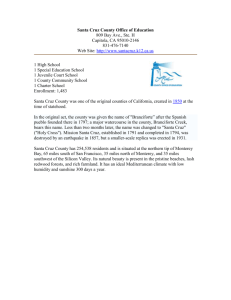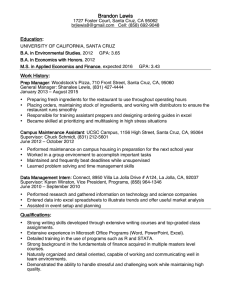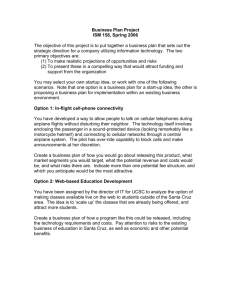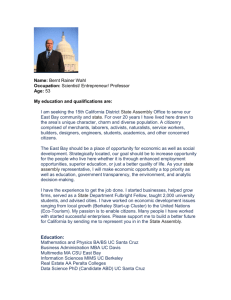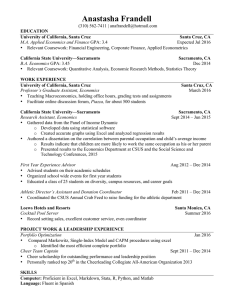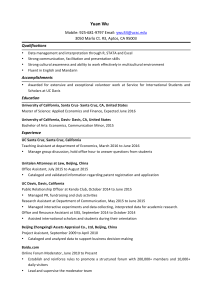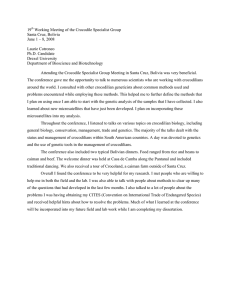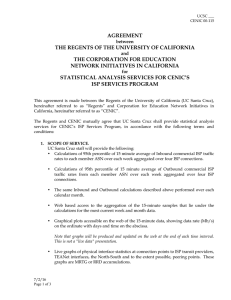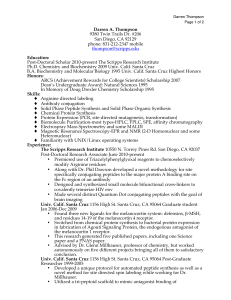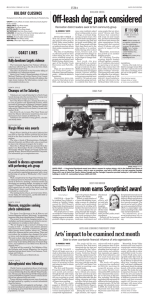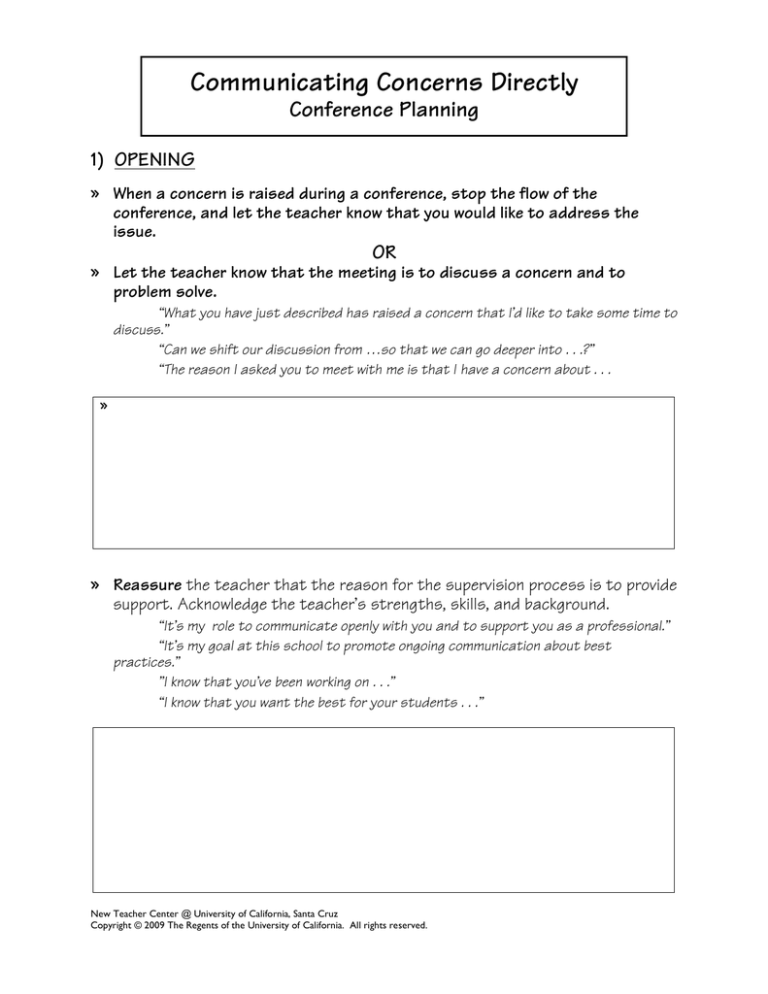
Communicating Concerns Directly
Conference Planning
1) OPENING
» When a concern is raised during a conference, stop the flow of the
conference, and let the teacher know that you would like to address the
issue.
OR
» Let the teacher know that the meeting is to discuss a concern and to
problem solve.
“What you have just described has raised a concern that I’d like to take some time to
discuss.”
“Can we shift our discussion from …so that we can go deeper into . . .?”
“The reason I asked you to meet with me is that I have a concern about . . .
»
» Reassure the teacher that the reason for the supervision process is to provide
support. Acknowledge the teacher’s strengths, skills, and background.
“It’s my role to communicate openly with you and to support you as a professional.”
“It’s my goal at this school to promote ongoing communication about best
practices.”
”I know that you’ve been working on . . .”
“I know that you want the best for your students . . .”
New Teacher Center @ University of California, Santa Cruz
Copyright © 2009 The Regents of the University of California. All rights reserved.
2) EXPLAIN THE CONCERN
» Clearly state the concern and provide evidence. Use school goals, district
and teaching standards to describe standards of professional practice.
Seek his understanding of the concern from the point of view of students,
parents, colleagues or yourself.
“ My concern is that . . . because . . .”
“During the past few months I have observed . . . and am concerned that . . . “
“The following comments have been made by students, parents, colleagues . . .“
“In past conversations we have discussed . . . and I am concerned that . . . “
“If you were a parent, how would you feel about . . .”
» Acknowledge the teacher’s feelings and provide the opportunity for questions
or comments.
“Can you tell me what you have heard so far?”
“Do you have any questions or comments”?
”How do you feel about what I’ve shared?”
New Teacher Center @ University of California, Santa Cruz
Copyright © 2009 The Regents of the University of California. All rights reserved.
3) PLAN NEXT STEPS
» Summarize or clarify the area for growth.
“ So, your goal would be . . .”
“ So if you could . . . then . . .”
“ Let’s restate your goal . . .”
» Create a plan for next steps and write it down. Ask the teacher to take the
lead. Share in the process, restating as needed in the language of
professional standards.
“ Let’s talk now about next steps. What steps might you take . . ?
“How would it be if . . ?” “What do you think about . . ?
New Teacher Center @ University of California, Santa Cruz
Copyright © 2009 The Regents of the University of California. All rights reserved.
4) CLOSURE
» Close by asking for feedback about the conference.
“It’s not easy when concerns are raised . . . I really appreciated . . . “
“What is some feedback you can give me about this conference and our future
work together?”
» Suggest a follow-up meeting.
“ Let’s meet in two weeks to discuss progress.”
“ I’d like to visit your classroom so I can support you.”
“Please feel free to stop by and let me know how things are going.”
Notes:
New Teacher Center @ University of California, Santa Cruz
Copyright © 2009 The Regents of the University of California. All rights reserved.



